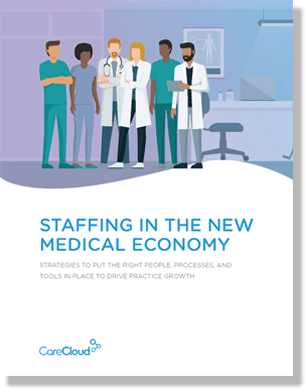Principal care management (PCM) is a patient-centered care model for patients with one chronic disease lasting for three or more months. PCM improves the quality of care, promotes better health outcomes, and increases revenue. As PCM is still a new care management model, providers might have trouble reimbursing for PCM. In this article, we will guide you on how to bill for PCM and what the PCM CPT codes are.
Key Requirements for Billing PCM
Before billing for principal care management, providers need to check for certain requirements. These include:
Billing Practitioner
The billing practitioner must be a physician or another qualified healthcare professional (QHCP) for principal care management services. Although this is not an explicitly stated requirement, CMS has stated that they expect that the majority of PCM services be delivered and billed by qualified healthcare professionals dedicated to managing patients with challenging chronic conditions. The 2020 MPFS states that PCM is for those patients whose conditions need to be stabilized by a qualified healthcare professional so that the patient’s care can be transferred back to the patient’s primary care provider.
Condition
To be eligible for PCM, it must meet the following conditions:
- A high-risk, complicated chronic disease must last for between three months and a year, or until the patient’s death.
- The condition places the patient at substantial risk of hospitalization, death, acute exacerbation or decompensation, and/or functional decline.
- It requires frequent medication adjustments and/or particularly complex care due to comorbidities.
- The condition must require the development, review, or revision of a disease-specific care plan.
- It also must require constant communication and care coordination among healthcare providers.
Multiple Conditions
The 2020 MPFS also states that a patient is allowed to receive PCM services from multiple specialists for different conditions at the same time. However, providers must make sure that the PCM services are not provided or billed concurrently with:
- Other care management services by the same practitioner for the same beneficiary
- Interprofessional consultations for the same condition by the same practitioner for the same patient
Communication/coordination
There must be ongoing communication and care coordination between all healthcare professionals providing services to the beneficiary, as documented in the patient’s medical record by the billing practitioner.
Supervision
It must be noted that under the CPT codes 99426 and 99427, it is eligible for clinical staff to perform PCM services under the supervision of the billing physician or QHCP. It is not necessary for the billing practitioner to be in the same physical location as the services provided; however, they must be available for consultation. These services may be rendered under general supervision. For the CPT codes 99424 and 99425, the eligible billing practitioners are a physician or other QHCP, and they must provide those services personally. Therefore, the CPT codes 99424 and 99425 cannot be used to bill for services rendered by clinical staff.
Initial visit
The billing practitioner must have an initial visit with the patient for new patients and patients who haven’t had a consultation in the year before PCM is started. This visit educates them about PCM and gets their consent for the purpose.
Billing with RPM
RPM services and PCM services may both be billed within the same month or billing period as long as the time spent providing one of the services is not billed twice. It is important that the time requirements for each code be met separately.
Disease-Specific Care Plan
CMS has outlined that billing practitioners must create a disease-specific care plan for patients getting PCM services. This is because a disease-specific care plan is more specific than a comprehensive care plan. It is specific to the disease or condition in question.
Medically Reasonable Elements
According to the 2020 MPFS, all elements do not necessarily apply every month in order for the codes to be billed, so long as those elements that are medically reasonable and necessary are provided.
CPT Codes for Principal Care Management
Recently, CMS revealed new CPT codes for principal care management, which include:
99424
The initial 30 minutes of services provided by a physician or QHCP for a single specific chronic disease must be billed for every calendar year.
99425
Each additional 30 minutes delivered by a physician or other qualified healthcare practitioner every calendar month.
99426
Initial 30 minutes of clinical staff service time, as directed by a doctor or other qualified healthcare professional, every calendar month.
99427
Additional 30 minutes of service time by clinical staff directed by a physician or other competent healthcare practitioner every calendar month.
Conclusion
Principal care management is here to revolutionize personalized medicine. With PCM, providers can give additional time to patients with chronic illnesses and improve patient outcomes.
CareCloud introduces principal care management to its digital health suite, Wellness. Its PCM solution helps providers increase revenue and improve patient outcomes.



